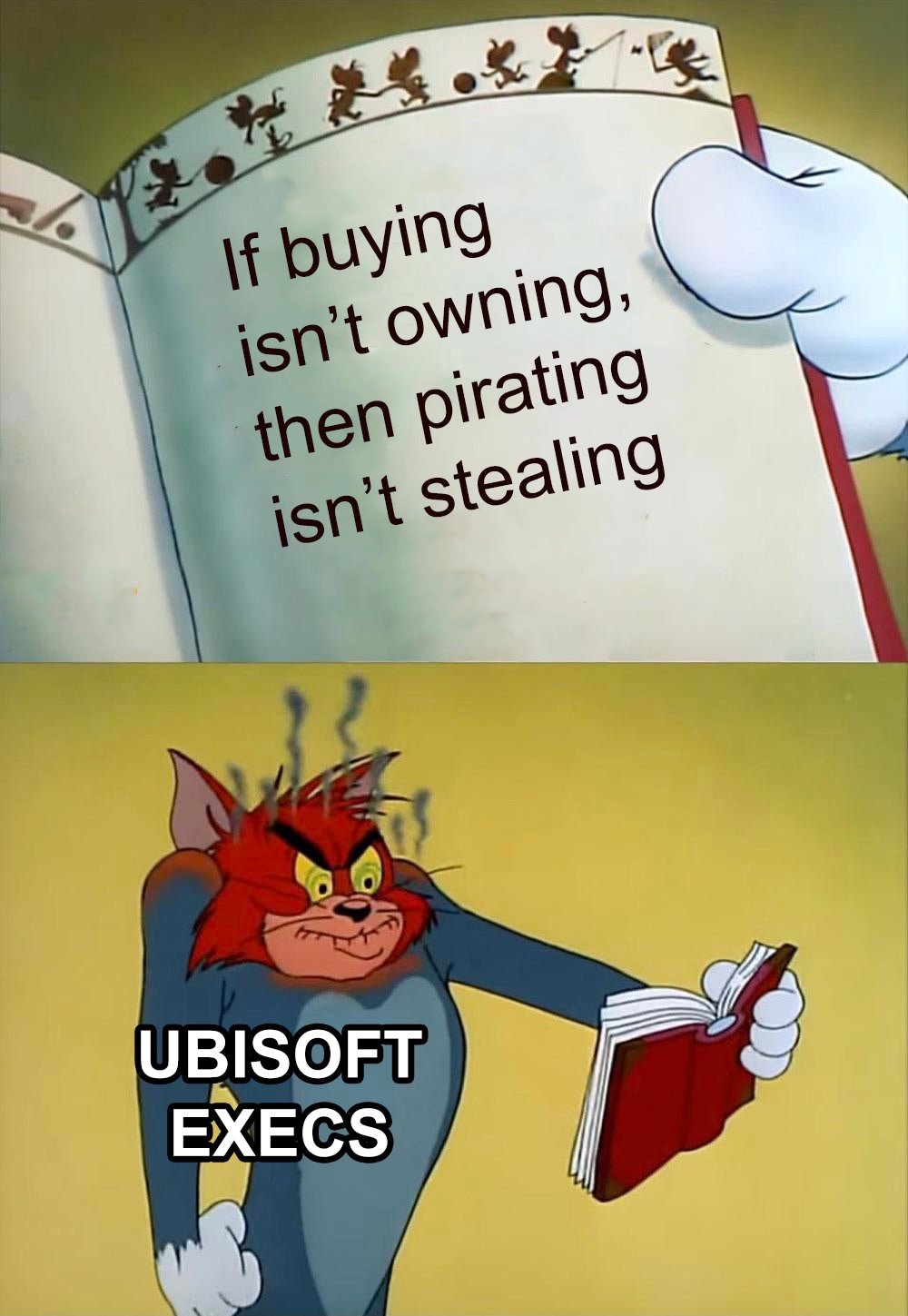this post was submitted on 10 Oct 2024
1204 points (96.5% liked)
memes
10406 readers
1784 users here now
Community rules
1. Be civil
No trolling, bigotry or other insulting / annoying behaviour
2. No politics
This is non-politics community. For political memes please go to !politicalmemes@lemmy.world
3. No recent reposts
Check for reposts when posting a meme, you can only repost after 1 month
4. No bots
No bots without the express approval of the mods or the admins
5. No Spam/Ads
No advertisements or spam. This is an instance rule and the only way to live.
Sister communities
- !tenforward@lemmy.world : Star Trek memes, chat and shitposts
- !lemmyshitpost@lemmy.world : Lemmy Shitposts, anything and everything goes.
- !linuxmemes@lemmy.world : Linux themed memes
- !comicstrips@lemmy.world : for those who love comic stories.
founded 1 year ago
MODERATORS
you are viewing a single comment's thread
view the rest of the comments
view the rest of the comments

Or we just go back to the old way; where a company sells a product and consumers just own it. Why does a static piece of software/video require a license? Updates used to be optional, but then company's started selling broken stuff and writing out exclusions until we had no other options.
I'm not opposed to the idea, but license keys for software have existed for a very long time.
License keys also don't always represent an application or software, they extend the rights of use beyond the initial purchase.
As a simple example, you can get license keys for Windows that do not change what version of Windows is installed or how it operates. I work in IT, and when setting up remote access systems, we need to buy remote desktop license keys to allow users to connect. You're not getting anything you couldn't otherwise, but you're allowed to have more people connected at a time while the system is running.
There's similar examples across the board, this is just one that's pretty fresh in my mind right now. One of my clients is hitting the limit of their RD licensing.
For less complex software, like games, there used to be a physical component, usually an installer disk or something that would need to be validated when the game launches (though disk burning made this ineffective). With digital resources it's nearly impossible to validate someone has a licence without some kind of license key system in place.
I'll say again, I see their argument here. I don't necessarily agree with any of it.
IMO, it's a challenging subject, and one that we the people, via our elected representatives, should be pushing for legal representation on, by implementing laws that govern how all this works and limiting how much companies like Ubisoft can fuck us over because it's Tuesday, and that made them mad.
Because the makers aren’t selling you the software or the video. They are selling you the rights to consume it. The reason for that is that software, movies and books can be easily copied and redistributed.
When that stuff was on a physical medium it was also sold with the same license. You would own the disc/tape/book with the license but you wouldn’t own the movie, software or literary work. You can sell the disc with the license but you can’t take the content of the disc and sell it separately since that is technically copying and you don’t own the copyright.
The old way was that you owned a disc or cartridge (or cassette tape) with an instance of the program on it. That's going to need a new definition that everyone can agree on.
Yeah a disc or cartridge with a license attached to it. So if you sold the disc you also sold the license. With digital distribution if you sell the files and transfer it to someone you technically made a copy. Which is not allowed since you don’t own the copyright.
...sort of. If your disc got scratched that somehow destroyed your license, and you had to buy another one.